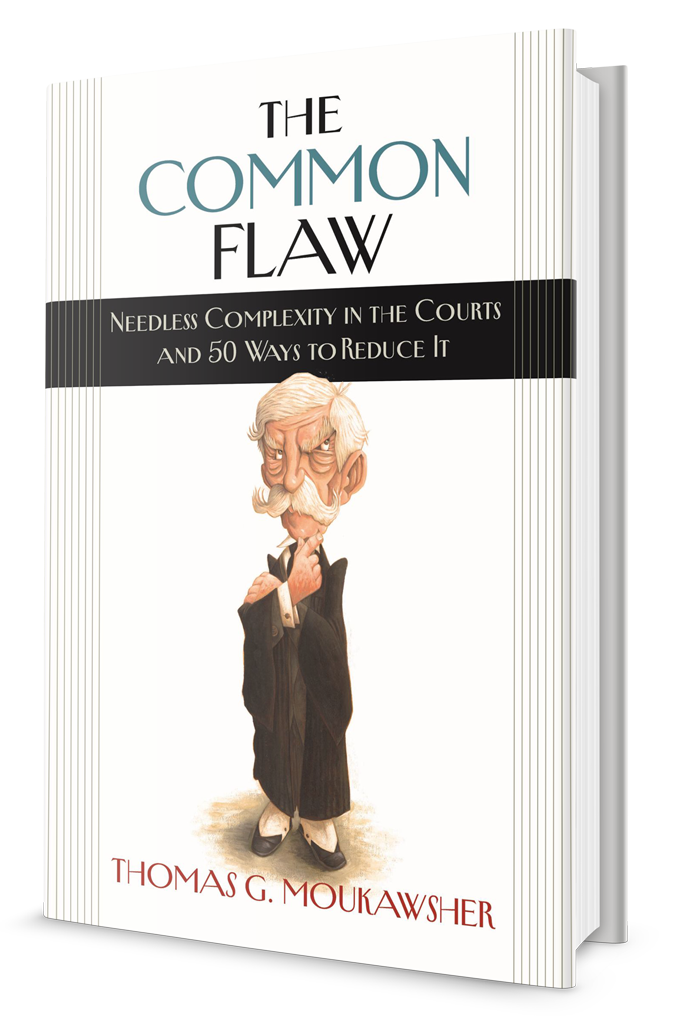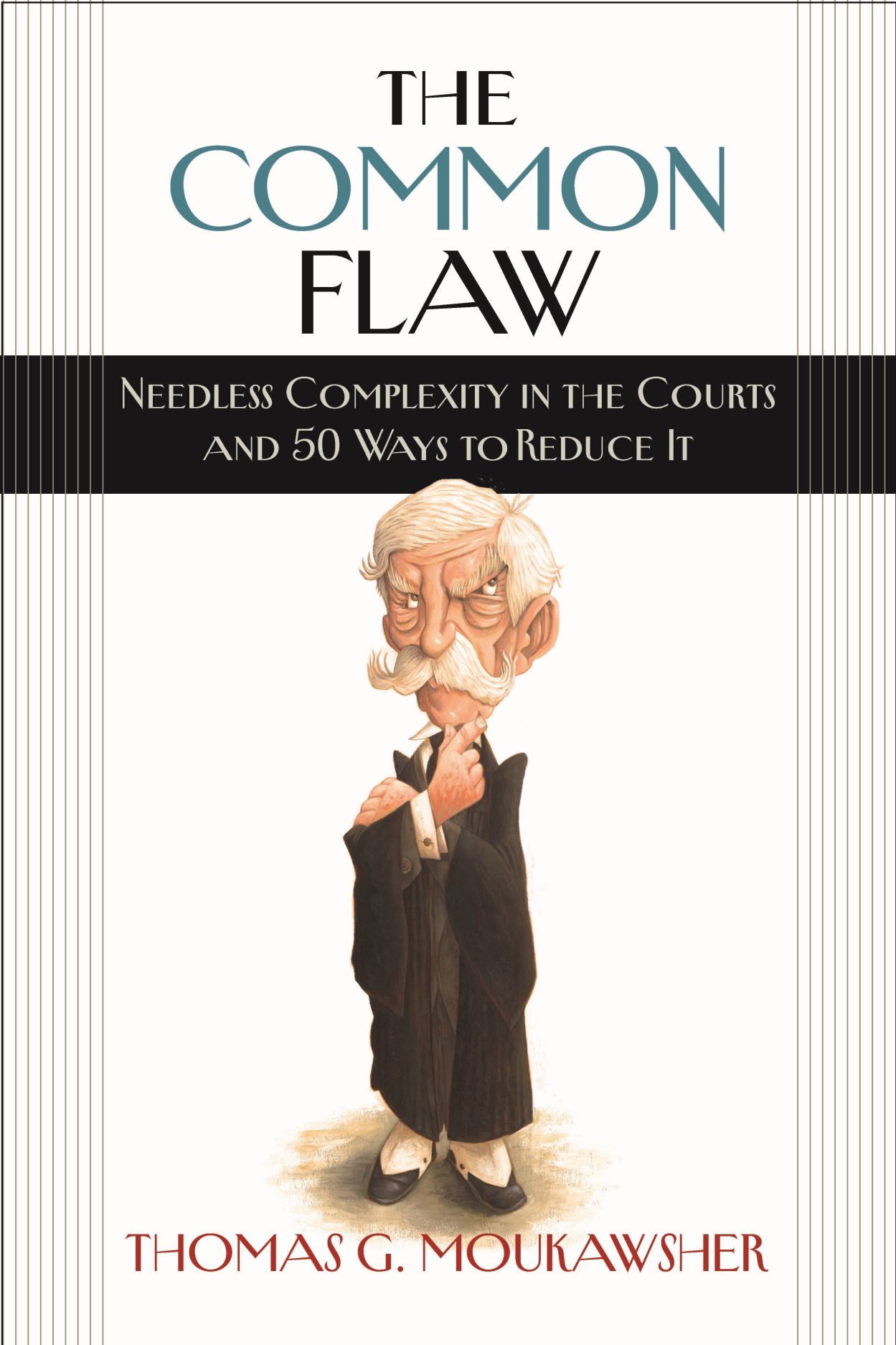“In this important book Judge Moukawsher provides an essential roadmap for reconsidering the priorities and aims of the judicial process, placing humanism and the public trust at the center of an important agenda for reform.”
—Paula A. Franzese, Peter W. Rodino Professor of Law,
Seton Hall University School of Law

About Thomas G. Moukawsher
Thomas G. Moukawsher is a former Connecticut Superior Court judge, who has spent nearly forty years studying, making, and administering law. He has been a lawyer, a legislator, a lobbyist, and for nearly ten years a complex litigation judge. Judge Moukawsher served in local government and as a member of the Connecticut General Assembly. He also acted as counsel to the Connecticut Democratic Party.
About The Common Flaw
Americans are losing faith in their courts. After long delays, judges often get rid of cases for technical reasons, or force litigants to settle rather than issue a decision. When they do decide cases, we can’t understand why.
The Common Flaw seeks to rid the American lawsuit of this needless complexity. The book proposes fifty changes from the filing of a complaint in court to the drafting of appellate decisions to replace the legal system’s formalism with a kind of humanism.
Praise for Judge Moukawsher
“A New England judge with a Southerner's flair for metaphor.”
—The New York Times
“I started reading the judge's... decisions and discovered a wonderful trove of language... I could read his decisions forever. Moukawsher wastes no time with fools or foolishness...”
—Mark Dubois, Connecticut Law Review
“… a smartly written, sometimes sardonic, and unusually pointed ninety-page opinion…”
—The New Yorker
“By explaining the reasoning, history and context behind his ruling in an easy-to-understand language, the judge did the public — the sovereign, if you will — a favor. In that sense, this was an opinion fit for a king.”
“Judge Moukawsher noted that the cities costs ‘are long radius and many concentric circles away from the simple observation that promoting more addiction creates more addicts.’ ...[P]utting ‘precise numbers’ on damages…would be…‘junk justice.’”
—The Wall Street Journal
Example Decision
A constitutional challenge to Connecticut’s school mask mandate shows human concerns, human history, and the balancing of competing human rights enshrined in law can take a timely place at the center stage of an emergency.
Humanist Legal Decisions
These are real rulings. Each ruling is from a public document and most can be found on the web. Nonetheless, here many of them are presented with substitute party names and a few fact adjustments to be clear they are here as examples of humanist thinking and writing in court and not about the parties or even the correctness of the results which, in many cases, might easily be disputed.
Featured Articles & Interviews
Judges Should Avoid Herd Mentality and a Default to Precedent, Bloomberg Law
Judges: Guard ‘your honor,’ ABA Journal
Humanism Should Replace Formalism In The Courts, Law360


